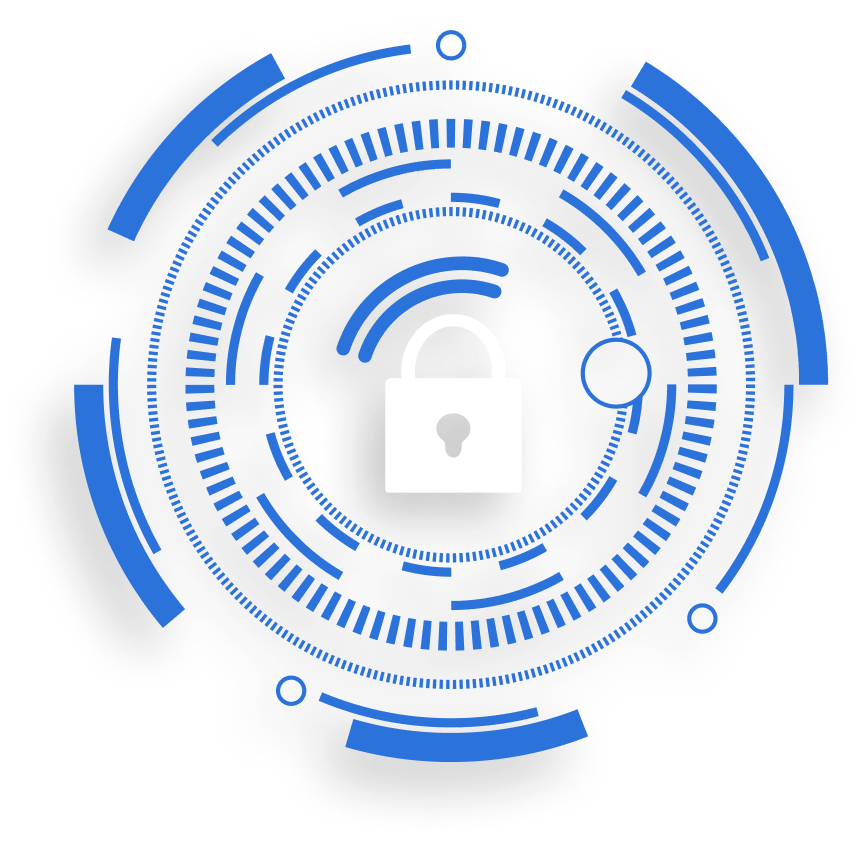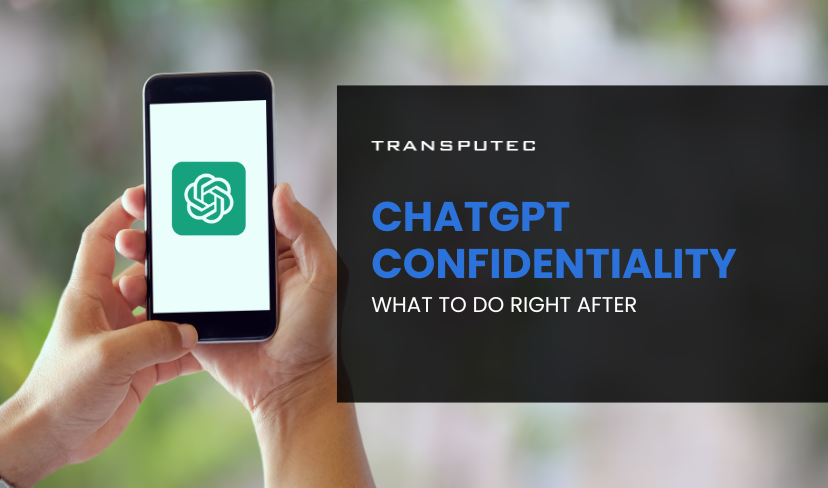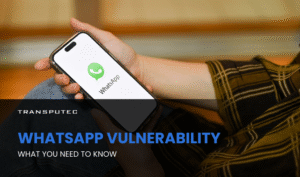Written by SONNY SEHGAL | CEO
With the rise of AI-powered tools like ChatGPT, businesses now have valuable options for automating tasks, creating content, and improving customer service. However, while ChatGPT provides many benefits, it’s essential to understand how to protect your confidential data in ChatGPT to prevent unintended leaks or misuse of sensitive information.
This blog explores actionable steps, policies, and practical tips to keep your data secure while using ChatGPT.
Why Protecting Your Confidential Data in ChatGPT Matters?
Artificial Intelligence, including tools like ChatGPT, depends on vast amounts of data to improve its accuracy and relevance. As these AI models process the information you provide, some level of data persistence may exist, raising privacy and security questions for businesses and individuals alike.
Studies from IBM and McKinsey emphasise that effective data protection is key to avoiding the average $4 million in potential data breach costs that companies face. By implementing strict data security measures, companies have reported a 30% reduction in compliance-related incidents involving AI.
Understanding the Risks of Sharing Data in ChatGPT
When interacting with ChatGPT, data inputs go through complex processing to generate responses. This process may involve temporary storage, and depending on how ChatGPT is configured (especially in free or public versions), there could be instances where your data contributes to improving future responses. While ChatGPT’s parent company, OpenAI, follows strict privacy protocols, there are still potential vulnerabilities.
Key Risks Include:
- Data Retention: Information you enter could be retained temporarily or stored as a learning input, potentially making sensitive information retrievable.
- Unauthorised Access: Data processed by ChatGPT could, in some configurations, become accessible to other users if there’s an internal data leak or external breach.
- Compliance Risks: Failure to handle data in compliance with laws like GDPR (in the EU), HIPAA (for healthcare), or CCPA (in California) can lead to legal penalties and damages.
According to a study by Veritas Technologies, over 52% of businesses acknowledge that most of their employees inadvertently share data in ways that could breach privacy policies, leading to fines and reputational damage.
Key Strategies for Protecting Your Confidential Data in ChatGPT
For businesses that want to leverage ChatGPT securely, here’s a step-by-step guide to protect your confidential data in ChatGPT.
1. Avoid Sharing Sensitive Information
The simplest, yet most effective approach is to avoid inputting any sensitive data into ChatGPT, including:
- Personally Identifiable Information (PII): Avoid sharing full names, addresses, phone numbers, email addresses, and social security numbers.
- Financial Data: Don’t input account numbers, credit card details, or transaction history.
- Trade Secrets: Keep company-specific or proprietary information out of your ChatGPT inputs.
Example in Practice: A support team may use ChatGPT to create responses to customer inquiries but should avoid including the actual customer’s name or any sensitive account details.
2. Use the “Disable Chat History & Training” Feature
OpenAI provides an option to disable chat history and training. When this setting is turned off, your inputs aren’t stored for improving the model, making it a safer option for sensitive data.
How to Use It:
- Navigate to Settings > Data Controls.
- Turn off “Chat History & Training.”
This ensures that your data isn’t retained or reused by OpenAI, adding an extra layer of protection for confidential inputs.
Example in Practice: An HR team working with ChatGPT to craft responses to internal employee FAQs can disable chat history, preventing sensitive information from being logged.
Protect your Business 24/7 with Transputec!
Our Managed SOC Cost Calculator estimates potential expenses for security tools and other costs based on your requirements.
3. Use API Access for Enhanced Control
If you’re using ChatGPT as part of an application (such as integrating it into your website or a chatbot), using the ChatGPT API offers a safer interaction than the public-facing interface.
- No Storage by Default: ChatGPT’s API doesn’t store your data by default, which is ideal for business applications.
- Customisation Options: You can control which data goes in and out, and use anonymised placeholders to mask sensitive information before sending it to ChatGPT.
Example in Practice: A finance company integrating ChatGPT via API to answer customer questions about basic product offerings can ensure sensitive account data is redacted before the interaction.
4. Implement Strict Data Classification
Data classification is the process of categorising data by sensitivity levels, which helps employees know what type of data is appropriate to share and where. Classify data like:
- Public: General data safe for sharing, e.g., “What services does our company offer?”
- Internal: Information not meant for public consumption but not highly sensitive.
- Confidential: Sensitive data, like financial or health information, which should not be shared with ChatGPT.
- Restricted: Critical data, like proprietary formulas or trade secrets, that must stay internal.
This classification system guides employees on what data can and cannot be input into ChatGPT.
Example in Practice: A consulting firm might label client proposals as "Confidential" and ensure employees understand they should not input such documents into AI tools.
5. Conduct Regular Employee Training on Data Security
No matter how secure your system is, human error remains a major risk. According to a study by Stanford University, 88% of data breaches are caused by employee mistakes. Training your team on how to protect your confidential data in ChatGPT can drastically reduce the risk of accidental data exposure.
Training Recommendations:
- Dos and Don’ts of AI use (e.g., don’t input client information).
- Steps to anonymise or redact the information before entering it into ChatGPT.
- How to use ChatGPT settings and API configurations securely.
Example in Practice: A healthcare provider can train staff to use only anonymised information when using ChatGPT for administrative purposes, avoiding HIPAA violations.
Transputec: Your Partner for Data Security in AI
At Transputec, we specialise in helping companies make their interactions with AI tools like ChatGPT secure and compliant. We offer custom security strategies and training programs designed to protect your confidential data in ChatGPT and other AI tools. Our services include:
- AI Data Privacy Assessments: We evaluate your current AI usage and identify any security gaps.
- Employee Training: Tailored training programs that cover best practices for secure AI use.
- Compliance Assistance: We help you align your AI data handling practices with industry standards and regulations.
By working with Transputec, you can ensure that your data is secure, your employees are informed, and your operations are compliant.
Benefits of Transputec’s Cybersecurity Service for Data Security in AI Use
- 24/7 Monitoring and Instant Alerts: Our service monitors AI data interactions around the clock, providing instant alerts to security administrators.
- Compliance Safeguards: With GDPR, HIPAA, and other regulations in mind, our DLP technology helps maintain compliance by protecting personal and sensitive data.
- Risk Mitigation and Training Support: With each incident flagged, you have the tools to educate your workforce on safe data practices and reinforce a secure data culture within your organisation.
By partnering with Transputec, you have a proactive layer of defence that secures confidential data and ensures that users interact safely with AI tools. Our service provides peace of mind with continuous monitoring, alerts, and custom protections tailored to meet your business’s data security needs.
Conclusion
As AI continues to evolve, the responsibility of ensuring data security lies with the organisations using these tools. By following best practices and implementing security measures, you can protect your confidential data in ChatGPT effectively. I
f you’re ready to secure your AI interactions and need expert guidance, Transputec is here to help. Contact us today to speak with an expert and get started on safeguarding your data.

Secure Your Business!
Ready to explore how we can enhance your security posture? Contact us today to speak with one of our experts.
FAQs
Why is protecting my data in ChatGPT important?
Ensuring your data’s security when using AI tools like ChatGPT is critical to prevent unauthorised access, avoid regulatory violations, and maintain customer trust.
What type of data should I avoid inputting into ChatGPT?
Avoid inputting personally identifiable information (PII), financial records, intellectual property, or other sensitive information to protect your confidential data in ChatGPT.
How can I prevent my data from being used for model training?
Disable the “Chat History & Training” option in ChatGPT’s settings to ensure your data isn’t stored or used for future model training.
Does ChatGPT’s API provide better data security?
Yes, using ChatGPT’s API can enhance data security as the API doesn’t store data by default, making it suitable for organisations with higher security requirements.
How can Transputec help with AI data security?
Transputec provides data security assessments, privacy policy creation, and employee training focused on protecting your confidential data in ChatGPT and AI tools.







